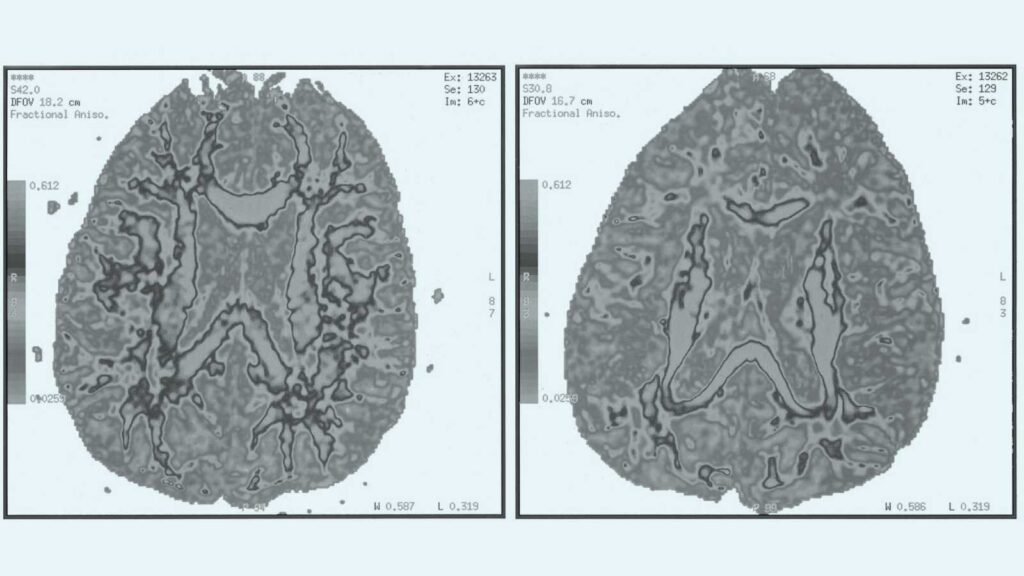Sai Abishek Bhaskar, an AI/Machine Learning engineer, has had a significant impact during his four-year tenure at Apple. As a backend engineer in iOS Search, his developed features have reached millions of users worldwide. Before this, he pursued his Masters in Artificial Intelligence and Natural Language Processing at Carnegie Mellon University, where he received the Boeing Fellowship for his pioneering work in applying Machine Learning to forecast aircraft service schedules. Additionally, he completed two research internships at the University of Stuttgart in Germany.
Apart from his academic and professional achievements, Sai also created Smort.io, a widely-used platform benefiting tens of thousands of users globally. During his time at Carnegie Mellon University, he participated in the 3rd annual BrainHub Neurohackathon, where he constructed an artificial intelligence-based system for diagnosing Alzheimer’s.
In an exclusive interaction with The Interview World, Sai Abishek Bhaskar delves into his artificial intelligence model designed to predict Alzheimer’s, discussing its accuracy, uniqueness compared to traditional diagnosis methods, and its impact. Below are the key highlights from his insightful interview.
Q: Can you provide an overview of the system you’ve designed to predict Alzheimer’s based on synapse information? What inspired you to work on this specific aspect of Alzheimer’s diagnosis?
A: I participated in the Third Annual BrainHub Neurohackathon held at Carnegie Mellon University. Our goal was to analyze existing neuroscience datasets and derive new insights within a single day. Working with my team, we developed three distinct Machine Learning models aimed at examining puncta characteristics in mice and predicting the likelihood of Alzheimer’s disease. Remarkably, the same input data and model predictions could be readily extended to humans.
With years of experience in studying and applying ML, I was eager to explore its applications in healthcare, particularly in a real-world, high-impact scenario. Accessing medical data, especially in neuroscience, is typically challenging. However, during the hackathon, not only were we granted access to the data, but we also had the invaluable guidance of neuroscience professors. This presented an ideal opportunity for me to apply ML techniques in the realm of healthcare.
Q: How does your model analyze synapse information to predict the likelihood of Alzheimer’s? What types of data inputs does the system rely on, and how do they contribute to the accuracy of the predictions?
A: The study utilized three different models to analyze a dataset, each yielding varying levels of accuracy. These models included a Support Vector Machine (SVM), a basic Multi-Layer Perception (MLP), which is a type of deep learning model, and a Random Forest Classifier. Their respective accuracies were 62.34%, 80.23%, and 87.89%.
Out of these models, the Random Forest Classifier stood out as the most accurate, achieving an impressive accuracy rate of 87.89%. Further investigation into the synapse locations considered by this classifier revealed crucial areas and their contributions to the predictions:
SLM Distal Apical: 80.27%
SP-SO Proximal Apical: 96.32%
SP-SO Proximal Basal: 95.29%
SR Medial Apical: 90.08%
All Regions: 87.89%
For the Random Forest Classifier, it was found that the number of vertices, maximum intensity, and sphericity were essential features in these locations that significantly influenced classification accuracy. These results underscore the significance of specific synapse locations and features in achieving precise predictions within the study’s scope.
Q: In what ways does your system differ from traditional methods of Alzheimer’s diagnosis? What advantages does it offer in terms of early detection and accuracy?
A: Conventional detection methods typically include imaging, cognitive and neuropsychological tests, or blood tests. Rather than replacing these methods, our approach aims to complement them by seamlessly integrating with their techniques. We utilize machine learning to offer a secondary assessment, drawing insights from our observations in mice. Achieving an accuracy rate of nearly 90%, our model is poised for initial testing.
Q: Could you share some insights into the training process of your model? How did you ensure that the model was capable of accurately predicting Alzheimer’s based on synapse data, and what kind of datasets were used for training?
A: We utilized datasets curated by Dr. Alison Barth, a distinguished Professor of Biological Sciences and the Executive Director of the BrainHub. These datasets comprised measurements of puncta in brain tissue from both healthy mice and mice afflicted with Alzheimer’s disease.
To assess our accuracy, we divided the data into three distinct sets: training, validation, and test. Our models underwent training using the data from the training set, and we determined the stopping point based on the performance observed on the validation set. Ultimately, the accuracies reported were based on the evaluation of our models using the test set.
Q: How do you envision the integration of your system into the existing healthcare infrastructure for Alzheimer’s diagnosis?
A: Our model seamlessly incorporates established imaging technologies like Magnetic Resonance Imaging (MRI) and Computed Tomography (CT) scans. These technologies help identify brain shrinkage and structural alterations indicative of Alzheimer’s disease. Puncta measurements crucially rely on high-resolution brain tissue scans. By accumulating more data, we enhance our model’s training and refine its predictive accuracy.
Q: Ethics and privacy are significant concerns in healthcare-related artificial intelligence applications. How have you addressed these issues in the development and deployment of your system, especially when dealing with sensitive patient data?
A: Ethics and privacy pose significant concerns in the realm of training artificial intelligence models using healthcare data. Patient data, being highly sensitive, demands utmost confidentiality and security. This assurance is essential to maintain trust and uphold ethical standards.
Artificial intelligence algorithms, while powerful, often lack transparency and may be too intricate for even their creators to fully comprehend. This opacity becomes particularly problematic when these systems are utilized in critical healthcare decision-making processes.
However, in our case, we utilize a traditional Machine Learning model, which allows us to discern the features of the data positively correlated with predictions. This transparency aids in understanding the model’s decision-making process.
Although our training dataset comprises synaptic information from mice, the same principles apply to humans. By leveraging anonymized synaptic measurements, we can confidently make predictions without compromising patient privacy.
Furthermore, while incorporating additional biomechanical signals could enhance our model’s performance, it’s crucial to note that no personally identifiable information (PII) of the patient is required. This ensures compliance with privacy regulations and maintains the ethical integrity of our approach.
Q: Can you elaborate on the potential impact of your innovation in the field of Alzheimer’s research and patient care? How do you foresee it influencing the overall landscape of Alzheimer’s disease management?
A: Our top-performing model achieved nearly 90% accuracy in predicting Alzheimer’s presence in mice. If human trials yield comparable results, our model could complement conventional methods, offering a Machine Learning-based second opinion. This integration could help mitigate false predictions for doctors and patients alike. Additionally, our model training pipeline is adaptable, potentially extending to the detection of other neuropsychological disorders in the future.




It?¦s in reality a great and helpful piece of information. I am happy that you simply shared this helpful info with us. Please stay us informed like this. Thank you for sharing.
Great line up. We will be linking to this great article on our site. Keep up the good writing.
Unquestionably believe that which you said. Your favorite reason appeared to be on the net the simplest thing to be aware of. I say to you, I definitely get irked while people think about worries that they just do not know about. You managed to hit the nail upon the top and defined out the whole thing without having side-effects , people could take a signal. Will probably be back to get more. Thanks
I’m still learning from you, as I’m trying to achieve my goals. I definitely enjoy reading all that is written on your blog.Keep the tips coming. I enjoyed it!
I’ve been exploring for a little bit for any high quality articles or weblog posts on this sort of area . Exploring in Yahoo I eventually stumbled upon this website. Studying this info So i am satisfied to exhibit that I have a very just right uncanny feeling I came upon just what I needed. I so much for sure will make sure to do not put out of your mind this site and provides it a glance on a constant basis.
Hi my friend! I want to say that this article is amazing, nice written and include approximately all significant infos. I would like to see more posts like this.
Great V I should certainly pronounce, impressed with your website. I had no trouble navigating through all tabs as well as related information ended up being truly simple to do to access. I recently found what I hoped for before you know it in the least. Reasonably unusual. Is likely to appreciate it for those who add forums or something, website theme . a tones way for your customer to communicate. Excellent task..
I’ve recently started a web site, the information you offer on this website has helped me tremendously. Thank you for all of your time & work.
I just like the valuable information you supply for your articles. I will bookmark your weblog and take a look at again here regularly. I’m fairly certain I’ll be informed plenty of new stuff proper right here! Best of luck for the following!
Very interesting subject , appreciate it for putting up.
It?¦s really a great and useful piece of info. I am glad that you simply shared this useful info with us. Please keep us up to date like this. Thank you for sharing.
Hello there! I know this is kind of off topic but I was wondering if you knew where I could locate a captcha plugin for my comment form? I’m using the same blog platform as yours and I’m having problems finding one? Thanks a lot!
I like this web blog very much, Its a rattling nice position to read and incur information.